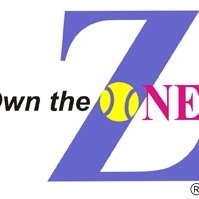
The rise of Forex trading has opened up new avenues for investors, but it has also raised important questions regarding its compliance with Islamic law. Is Forex trading halal or haram? This article will explore this complex question, providing insights based on Islamic finance principles and contemporary interpretations of the Shariah.
forex trading halal or haram https://trading-terminal.com/
Understanding Forex Trading
Forex, or foreign exchange, is a global market for trading national currencies against one another. With the increase in technology and the availability of online trading platforms, Forex has become increasingly accessible, allowing individuals to engage in currency trading from anywhere in the world. The allure of Forex is its potential for high returns, but with these potential rewards come risks, necessitating a deep understanding of the market.
Basic Principles of Islamic Finance
To answer the question of whether Forex trading is halal or haram, a fundamental grasp of Islamic finance principles is essential. Islamic finance is grounded in Shariah law, prohibiting activities that involve excessive uncertainty (gharar), gambling (maysir), and charging or paying interest (riba). Understanding these principles will allow for a better evaluation of trading activities like Forex.
Halal Aspects of Forex Trading
Some scholars argue that Forex trading can be considered halal under certain conditions. Key points that support the halal view include:
- No Interest Payments: Forex transactions can be structured to avoid interest, particularly when trades are held for a short duration and margin accounts are avoided.
- Non-Speculative Nature: Forex trading, when done for hedging purposes or as a legitimate business endeavor, may be seen as halal. Traders who engage to protect against currency fluctuations rather than purely for profit may find their activities compliant with Islamic principles.
- Short-term Trading: Day trading or very short-term trades may fall under acceptable practices in Islam because they do not involve holding positions overnight and, therefore, do not accrue swap fees (which can violate Shariah norms).
Haram Aspects of Forex Trading

Conversely, many Islamic scholars assert that Forex trading can be haram based on several considerations:
- Speculation and Gambling: The volatile nature of Forex trading resembles gambling. If a trader participates primarily for speculative purposes, rather than for economic benefits, it could be deemed haram.
- Leverage and Riba: Leverage is a common tool used in Forex trading, which may lead to riba if traders are charged interest on borrowed funds, conflicting with Islamic finance principles.
- Uncertainty and Gharar: The Forex market can be highly unpredictable. Many trades involve high levels of uncertainty and risk, which might classify them as haram due to the principle of gharar.
The Role of Fatwas
The determination of whether Forex trading is halal or haram can vary widely among scholars and institutions. Some Islamic financial institutions have issued fatwas (legal opinions) regarding Forex trading, with some declaring it permissible under specific conditions, while others oppose it outright. These fatwas play an essential role in guiding Muslim traders as they navigate the complexities of financial markets while adhering to their faith.
Finding a Halal Forex Broker
For those looking to engage in Forex trading within the bounds of Islamic law, finding a broker that offers Islamic accounts is crucial. These accounts typically avoid interest charges on overnight positions and provide options tailored for Muslim traders. Key features to seek in halal Forex brokers include:
- Swap-Free Accounts: These accounts do not incur interest, making them compliant with Islamic law.
- Transparent Policies: Ensure that the broker provides clear and concise policies regarding fees, spreads, and commissions.
- Reputation and Regulation: Opt for brokers that are regulated by a reputable financial authority and have positive feedback from existing users.
Conclusion
The question of whether Forex trading is halal or haram cannot be answered definitively due to varying interpretations within Islamic finance. It is essential for Muslim traders to educate themselves on the principles of Shariah and seek guidance from knowledgeable scholars or financial advisors. By understanding these principles and working with reputable brokers, traders can make informed decisions that align with their faith while participating in the global Forex market.
Final Thoughts
As the Forex market continues to grow, so too does the importance of ensuring that trading practices align with personal beliefs and ethical standards. By engaging with the complexities of Islamic finance and actively seeking halal opportunities, traders can find ways to navigate this lucrative market responsibly.


